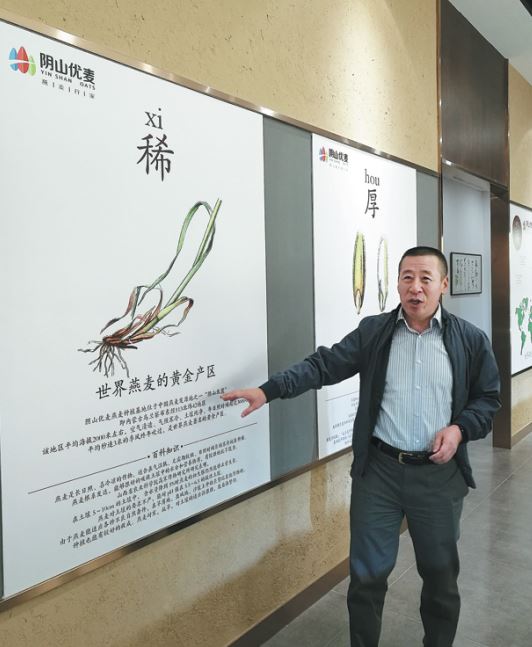Inner Mongolia boosts poverty relief efforts


"I was born and raised in Qahar Right Wing Middle Banner, an administrative division hit hard by poverty, and I wanted to do something for people in my hometown. The fight against poverty is a major agenda for China. Our company should make a contribution by promoting industry-based poverty alleviation," said Lu Wenbing, chairman of Yinshan Oats.
China's poverty-relief efforts are in the middle of a transition from making donations to helping poverty-stricken families expand their production capacity and make a profit.
In Guangyilong, a town in Ulaanqab, 300 impoverished families joined a husbandry cooperative. Each family bought a Mongolian mare at a price of 9,000 yuan, of which the family paid 3,000 yuan and the rest was paid by PICC Property and Casualty Co Ltd.
The families signed a three-year contract with the cooperative, entrusting it to raise their mares and extract serum from the animals when pregnant. During the term of the contract, the cooperative will pay each family 1,000 yuan a year in dividends and gain a profit from the serum, which is used in pig breeding.
At the end of the contract, the families own the mares and foals born to the mares belong to the cooperative.
As the current demand for the serum of pregnant mares is only 300 tons a year in China, the key to starting the business was finding a buyer. PICC introduced the cooperative to Ningbo Sansheng Pharmaceutical Co Ltd, which agreed to buy the serum after it passed the drug manufacturer's inspection.
"Apart from lifting 300 rural households out of poverty, we are looking forward to those families being able to buy more mares in three years' time and joining our cooperative as shareholders with their mares as assets," said Zhang Jinzhu, legal representative of the cooperative.
Its production capacity is expected to reach 15 tons in 2020. Considering that the income from pregnant mare serum may vary from 180,000 to 260,000 yuan per ton, it is estimated that the cooperative will make a profit of 700,000 to 800,000 yuan a year, he said.
"To reduce poverty through financial support, we must raise our political awareness and adhere to commercially sustainable lending. Financial institutions should promote intellectual development of impoverished families and invigorate them to make money, thus preventing them from relying heavily on government assistance," said Zhang Chunlin, president of the Agricultural Bank of China Inner Mongolia Branch.
With the help of financial institutions and the China Banking and Insurance Regulatory Commission, 192 impoverished families and the rural collective economic organization in Tumuertai town in Qahar Right Wing Rear Banner purchased a total of 292 Angus cattle for 4.69 million yuan, of which the regulator contributed 2.6 million yuan and Zheshang Jinhui Trust Co Ltd contributed 500,000 yuan. Ping An Insurance (Group) Co of China Ltd also donated 148,400 yuan to purchase insurance for the cattle.
The families and the rural collective economic organization signed an eight-year contract with Inner Mongolia Huoshanben Agriculture and Livestock Co Ltd, entrusting the company to raise their cattle. The company will pay dividends totaling 13,800 yuan per cow during this period and will return cattle of the same age and size as they were when bought by their owners when the contract expires.
The current market price for a fully grown Angus cow is more than 30,000 yuan, and it takes three years for a newborn calf to become ready for slaughter, said Sun Qi, general manager of the company.
Located in Daxi village of Tumuertai town, the project will also lead to a transition of the village's planting industry from growing grains to grass, in addition to providing 10 jobs to poverty-stricken families at a monthly salary of 2,500 yuan.




































